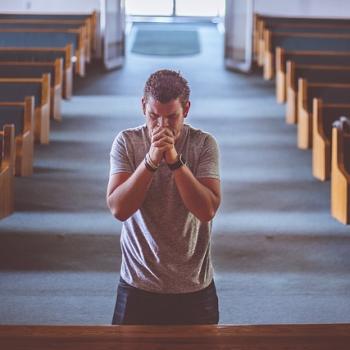I only have a couple of minutes this morning to report to you that the second day of the BNTC was a rewarding day. We had an afternoon plenary session with Loveday Alexander who offered a careful consideration of how to navigate between a wildly far-fetched maximalist approach to Luke’s use of Hellenistic literary sources (novels, myths, philosophical maxims) and a classic minimalist approach that just recognizes quotations. She was especially keen on pointing out how Christ is compared with Bacchus in religious art in the reception history of the NT. There is much more to be done here, but I suspect she will be doing much of it!
In the night plenary (beginning at 8PM!), Dale Martin offered a discussion of how Jews and Christians (especially Paul) understood demons and angels. Though his paper was quite complex, the basic point was to argue that Paul followed an LXX/Hebrew Bible tradition of considering angels to be one specific kind of being and demons another kind – thus, the two should not be as easily collapsed into one category ontologically as has been assumed in modern and medieval Christian mythology. Very stimulating discussion afterwards!
In terms of seminar groups, I was involved in Hermeneutics. We had several good papers with mine being in the late morning. It was a small but quaint group (4 people total) and I received very helpful feedback.
The publishers displays were particularly impressive with really good discounts. Continuum editor Haaris Naqvi told me it was a good conference for them in terms of commissioning books and building author-publisher relationships.
Day two saw some really good proper English rain. We expected a visit and short speech from Bishop Tom Wright that never happened. Sad.
This year, in my opinion, was a bit unusual in that we had a number of scholars come from American institutions to give papers. The British NT Conference is getting international attention!
On Day 3, we had one final seminar session and a final plenary. In the final plenary Eddie Adams offered a captivating look at the issue of house churches and early Christian meeting places. Adams primarily argued that NT scholars have overdrawn evidence to suggest that houses were nearly the only place CHristians met for worship. Adams, both from a literary and archaeological perspective, argued that we must give more weight to other options as well including shops, bathhouses, storehouses, and outside locales. Very interesting.
On a personal note, I had some great lunch and dinner discussions with some fine scholars. I was particularly impressed with such folks as Todd Still, David Horrell, Loveday Alexander, and Barry Matlock.
For sometime now a small group of scholars have been unsatisfied with the current ‘seminars’ system and, though the idea of revamping the system was brought up at the business meeting, there a decision to put off further discussion for another year. Personally, I like the current system. Though in seminars scholars are segmented and divided into sub-disciplines, this is complemented by plenary sessions which everyone attends. Contrast this with SBL where scholars from various NT sub-disciplines almost never interact unless they consciously choose to go to sessions outside of their field.
Overall, many commented to me that this was a very enjoyable conference. I take for granted how lovely Durham is, but many really enjoyed touring the cathedral and learning in such a historic environment. At one point I was disappointed that we did not invite C.K. Barrett to come and participate in the conference as many would have liked to meet him (he is 91 years old now, but is still quite active in preaching and also still writing and publishing).
Next year the conference will be in Aberdeen and, though Andrew Clarke gave the pre-welcome introduction and speech on behalf of Aberdeen, he commented that they are yet to have a chair in NT to give a welcome. I look forward to seeing who fills that position.
Finally, I agree with several scholars who observed that this years’ plenary speakers were especially excellent and we had an excellent selection of discussions on various parts of the NT, various methodological issues, and both very senior scholars (in prestige) and some younger ones as well.















